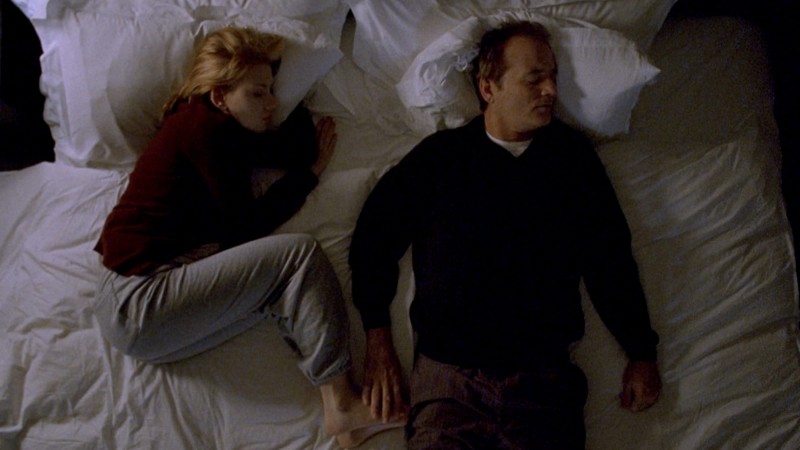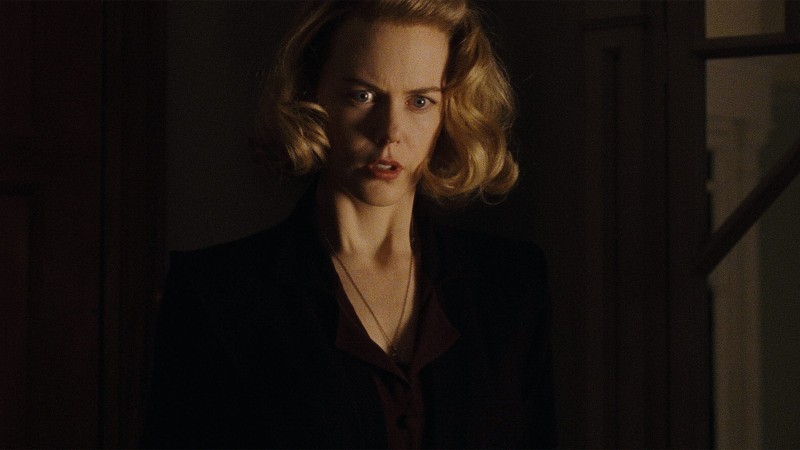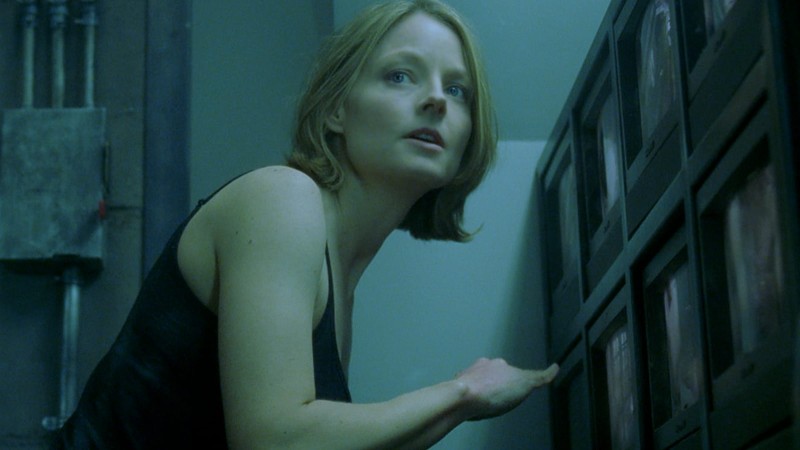The Criterion Channel’s November 2023 Lineup

The Criterion Channel’s November 2023 Lineup
This November, learn the art of the con from some of cinema’s craftiest swindlers, or saddle up alongside some of the most complex and determined female characters in the history of the western. You won’t want to miss the scandalous charm of the early-thirties starlets in our Pre-Code Divas collection, or the shadow-drenched atmosphere of a special Noirvember sampler we’ve prepared. There’s so much more to choose from this month, including a gore-splattered Hong Kong cult classic, a newly restored Alain Resnais masterpiece, Harmony Korine’s most radical scuzzfest, and Hype Williams’s hallucinatory hip-hop classic Belly.
If you haven’t signed up yet, head to CriterionChannel.com and get a 7-day free trial.
* indicates programming available only in the U.S.
TOP STORIES
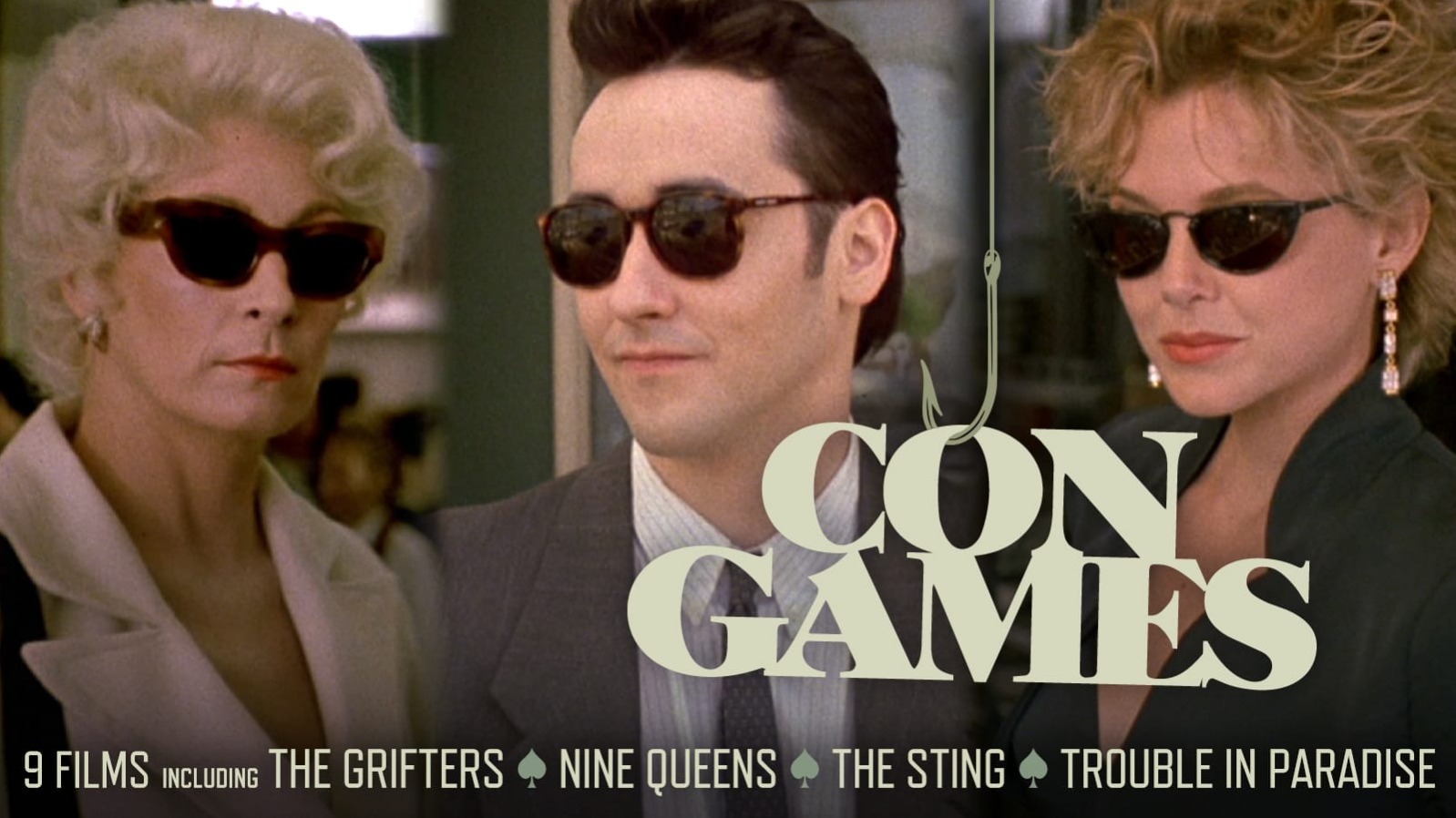
Con Games
WATCH NOW
FEATURING: Trouble in Paradise (1932), The Lady Eve (1941), The Sting (1973)*, Chameleon Street (1989), The Grifters (1990), Nine Queens (2000), Matchstick Men (2003), 21 (2008); COMING DECEMBER 1: House of Games (1987)

Women of the West
WATCH NOW
High-riding, sharpshooting, empire-building women take on the frontier in these westerns that boldly subvert classical tradition. The new strain of psychologically charged revisionist westerns that took hold in the postwar era increasingly made room for active, complex female roles in what had long been a male-dominated genre. In these films, women are powerful owners of ranches and saloons; gunfighters and outlaws able to shoot it out alongside any man; and steely survivors who stand tall, fighting to hold on to what they have or to avenge their wrongs. Featuring such legends as Barbara Stanwyck (The Furies, Forty Guns), Joan Crawford (Johnny Guitar), and Marlene Dietrich (Rancho Notorious) in some of their greatest roles, these films reframe one of Hollywood’s most hallowed genres around women with courage, grit, and independence to spare.
FEATURING: Station West (1948), The Furies (1950)*, The Lusty Men (1952), Rancho Notorious (1952), Johnny Guitar (1954), Forty Guns (1957), The Beguiled (1971)*, The Quick and the Dead (1995)

Pre-Code Divas
WATCH NOW
Women undoubtedly had more fun in the pre-Code era—the early-thirties moment before the Hays Office brought censorship to Hollywood—when sex was liberated and debauchery unabashedly celebrated. And today, half the pleasure we derive from these films comes from the magnetic charm, worldly glamour, and thoroughly modern sensibility of the platinum-blonde bombshells and raven-tressed vamps who lit up the silver screen before prudishness crashed the party. While some stars like Barbara Stanwyck (Baby Face), Marlene Dietrich (Dishonored), and Irene Dunne (Back Street) would go on to enjoy long careers at the top, others, like Ann Dvorak (Three on a Match), Anna May Wong (Daughter of the Dragon), and Dorothy Mackaill (Safe in Hell) reached their zenith in the early 1930s, their style and sophistication forever associated with this most delectable cinematic moment.
FEATURING: The Divorcee (1930), Hell’s Angels (1930)*, The Cheat (1931), Daughter of the Dragon (1931), Dishonored (1931), Night Nurse (1931), Safe in Hell (1931), Back Street (1932), No Man of Her Own (1932), Scarface (1932), This Is the Night (1932), Three on a Match (1932), Baby Face (1933), Design for Living (1933)*, I’m No Angel (1933), She Done Him Wrong (1933)

November Noir
WATCH NOW
Shadowy atmosphere, seedy characters, pulp philosophy, and cynicism as thick as smoke: there’s nothing like film noir. As America returned from World War II, the national unconscious gave rise to a new breed of crime picture, populated by gumshoes, femmes fatales, and fall guys whose labyrinthine entanglements—captured in lush chiaroscuro cinematography—expressed a dark fatalism never before seen on the big screen. Where other Hollywood movies sought to recreate the magic of dreams, film noir aimed for the seductive danger of nightmares. Featuring some of the genre’s most ingenious directors (Edgar G. Ulmer, Otto Preminger, Jules Dassin) and most magnetic stars (Veronica Lake, Richard Widmark, Burt Lancaster, Gene Tierney), this sampler will lead you down a few of noir’s darkest alleys.
FEATURING: The Glass Key (1942), Laura (1944), Detour (1945), Fallen Angel (1945), Hangover Square (1945), Green for Danger (1946), Brute Force (1947), Ivy (1947), Nightmare Alley (1947), The Naked City (1948), So Evil My Love (1948), The Third Man (1949), Madeleine (1950), No Way Out (1950), Panic in the Streets (1950), So Long at the Fair (1950), The House on Telegraph Hill (1951), The River’s Edge (1957), Sapphire (1959), All Night Long (1962)

Directed by Robert Bresson
WATCH NOW
A singular, iconoclastic artist, Robert Bresson left behind an astonishing body of work, defined by the search for what he called “not beautiful images, but necessary images.” In a long, visionary career that began in the 1940s and ended in the 1980s, he continually refined the strict precision of his famously ascetic style—abolishing psychology, professional actors, and ornate camera work, and instead concentrating on the exactingly choreographed movements of his “models” (as he called his performers) and the anguished solitude of his martyred characters. In indelible visions of suffering and salvation like Pickpocket, Au hasard Balthazar, and Mouchette, he stripped cinema to its essence to reveal nothing less than the very soul of his subjects.
FEATURING: Les dames du Bois de Boulogne (1945), Diary of a Country Priest (1951), A Man Escaped (1956), Pickpocket (1959), The Trial of Joan of Arc (1962), Au hasard Balthazar (1966), Mouchette (1967), The Devil, Probably (1977), L’argent (1983)
EXCLUSIVE PREMIERES

Lynch/Oz
WATCH NOW
Featuring a new introduction by the filmmaker, part of Criterion’s Meet the Filmmakers series
The themes, images, and cultural vernacular of Victor Fleming’s The Wizard of Oz continue to haunt David Lynch’s art and filmography—from his very first short, Six Men Getting Sick, to his latest series, Twin Peaks: The Return. Arguably, no filmmaker has so consistently drawn inspiration—consciously or unconsciously—from a single work. Is David Lynch trapped in the land of Oz? If so, can we derive a new appreciation for Lynch’s body of work from taking a closer look at how it intersects and communicates with The Wizard of Oz? In turn, do Mulholland Dr., Lost Highway, and The Elephant Man have something to say about the enduring resonance of one of America’s most beloved classic movies? Viewed through six distinct perspectives and narrated by some of contemporary cinema’s most exciting voices, Lynch/Oz will take us down the proverbial rabbit hole, help us re-experience and reinterpret The Wizard of Oz by way of David Lynch, and deliver a whole new appreciation for Lynch’s symbolism through the lens of his greatest influence.
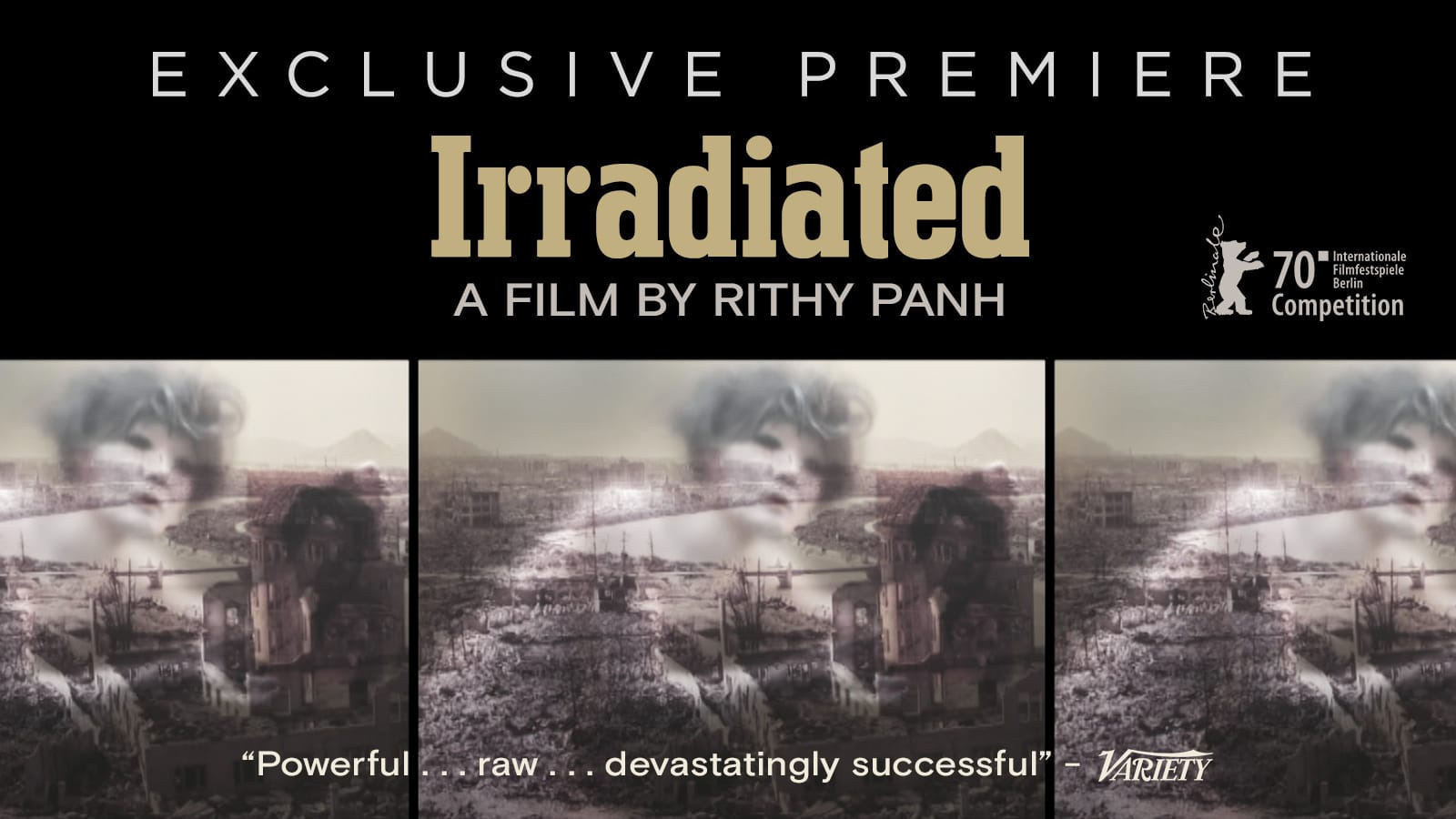
Irradiated*
WATCH NOW
Having spent his career examining the Cambodian genocide that claimed the lives of so many of his family members in acclaimed documentaries like The Missing Picture, director Rithy Panh turns his attention to the myriad atrocities that haunt twentieth-century history. Dividing the screen into a triptych of panels, Panh presents soul-shaking images of war’s devastation and mankind’s capacity for evil, from Auschwitz to Hiroshima to Vietnam and beyond. Set to poetic and thought-provoking narration, the result is a harrowing but undeniably necessary confrontation with real-life horror that challenges us to face it head-on.

My Two Voices
WATCH NOW
A poetic exploration of the fluid nature of identity, My Two Voices introduces us to Ana, Claudia, and Marinela, three Latin American women who share their intimate experiences of immigrating to Canada while reflecting on themes of violence, belonging, motherhood, and reconciliation. Weaving together carefully framed close-ups of hands and faces with contemplative images of private and public spaces against a richly layered soundscape, this unique documentary from acclaimed director Lina Rodriguez creates an impressionistic tapestry that resists a centralized perspective and echoes the protagonists’ fragmented and hybrid identities.
REDISCOVERIES AND RESTORATIONS

Riki-Oh: The Story of Ricky
WATCH NOW
Featuring a new introduction by author Grady Hendrix
The ultimate Hong Kong black-comic gorefest, this live-action adaptation of the cult manga is a blood feast of entrail-wreathed splatter and literally eye-popping ultraviolence. After he’s sentenced to a corrupt private prison for taking revenge on the shadowy gangsters who killed his girlfriend, the seemingly indestructible Ricky Ho (Fan Siu-wong) must fight his way out past a litany of enemies and unsavory figures using his superhuman ability to punch through any object (including the human body). Channeling the kinetic, hyperstylized spirit of the manga source material, writer-director Lam Nai-choi delivers a blast of pure cinema so outrageously over the top it’s nearly avant-garde.

Trash Humpers
WATCH NOW
Scuzz poet Harmony Korine takes a dumpster dive into the freakiest fringes of weirdo America with this singular paragon of pop-art transgression. Shot on appropriately grimy VHS, Trash Humpers brings us a gang of elderly degenerates who film themselves in the backlots and alleyways of Nashville, drinking heavily, defiling garbage and anything else at hand, and spreading destruction wherever they go. An unclassifiable work of post-cinema that plays like the most bizarrely unsettling home movie ever uncovered in a flea-market bargain bin, Trash Humpers is graced with the strange beauty and proudly outsider spirit that runs through all of Korine’s films.

La guerre est finie
WATCH NOW
With an Academy Award–nominated, autobiographical screenplay by Spanish political exile Jorge Semprún, La guerre est finie (“The War Is Over”) finds pioneering modernist Alain Resnais channeling his signature explorations of time and memory into a tense political thriller that gives voice to the revolutionary fervor and dashed dreams that marked a generation. Three decades after the Spanish Civil War, Communist operative Diego Mora (Yves Montand) finds himself juggling multiple secret identities as he continues his dangerous missions and reflects on a life of political struggle. Though he is increasingly disillusioned, his determination to help a possibly captured comrade and a chance encounter with an impetuous student terrorist (Geneviève Bujold) keep his commitment to the cause alive in a world of subterfuge and treachery.
CRITERION COLLECTION EDITIONS

A lost treasure of 1990s DIY filmmaking embeds an incisive look at racial injustice within a lovingly handmade buddy movie/murder mystery/romance.
SUPPLEMENTAL FEATURES: A conversation between director Cauleen Smith and film scholar Michael B. Gillespie and short films by Smith.
DIRECTOR SPOTLIGHT

Directed by Lina Rodriguez
WATCH NOW
Featuring a new introduction by the director, part of Criterion’s Meet the Filmmakers series
The search for identity is at the core of Colombian-Canadian director Lina Rodriguez’s intimate, richly impressionistic films. Informed by her own immigrant experience, her narrative features like So Much Tenderness and This Time Tomorrow and her acclaimed documentary My Two Voices capture women in the process of discovering themselves as they wrestle with feelings of cultural displacement, fraught family ties, past traumas, and the social expectations that shape their lives. Her formally adventurous framing, editing, and sound design give sensorially textured expression to the complex psychic landscapes she maps.
FEATURES: Señoritas (2013), This Time Tomorrow (2016), Cinépistolaire (Episode 2) (2022), My Two Voices (2022), So Much Tenderness (2022)*
SHORTS: Convergences and Re-Encounters (2008), Einschnitte (2010), Protocol (2011), Ante mis ojos (2018), Aquí y allá (2019)
TRUE STORIES

Outsiders and Visionaries: Documentaries by Matt Wolf
WATCH NOW
Through revelatory use of archival footage, documentarian Matt Wolf sheds light on the nearly forgotten stories of visionary outsiders and queer heroes whose ahead-of-their-time contributions to culture have only begun to be fully appreciated. Whether going behind the music of avant-pop genius Arthur Russell (Wild Combination: A Portrait of Arthur Russell), unraveling the enigma of pioneering media archivist-activist Marion Stokes (Recorder: The Marion Stokes Project), or telling the unique gay love story of history-shaking civil rights leader Bayard Rustin (Bayard & Me), Wolf brings his subjects to vivid, compelling life.
FEATURES: Wild Combination: A Portrait of Arthur Russell (2008), Teenage (2013), Recorder: The Marion Stokes Project (2019), Spaceship Earth (2020)*
SHORTS: I Remember: A Film about Joe Brainard (2012), The Face of AIDS (2016), Bayard & Me (2017), Another Hayride (2021)
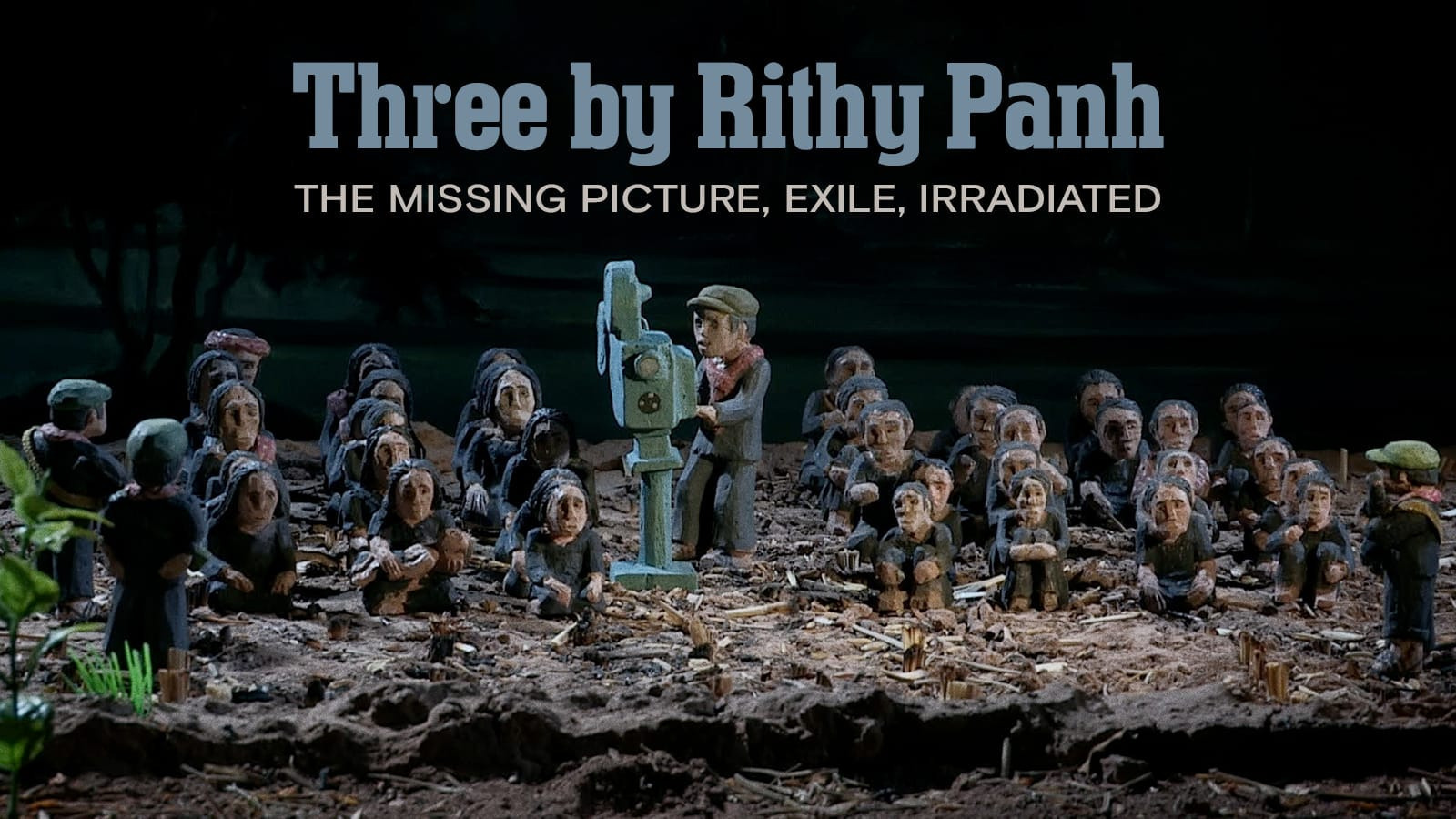
Three by Rithy Panh
WATCH NOW
The sole member of his family to survive the Cambodian genocide, documentarian Rithy Panh has devoted himself to exorcising the traumas of his country’s past through the cathartic power of cinema. These profoundly moving works—the Academy Award–nominated The Missing Picture, which recreates the lost images of the genocide through clay figurines; Exile, a poetic rumination on the horrors his family experienced at the hands of the Khmer Rouge; and Irradiated, an unflinching confrontation with the devastation of war across twentieth-century history—are harrowing and haunting records of human atrocity and unbelievable resilience.
FEATURING: The Missing Picture (2013)*, Exile (2016)*, Irradiated (2020)*

Sam Now
WATCH NOW
Director Reed Harkness and his half-brother Sam go searching for their missing mom, resulting in a twenty-five-year story of their brotherhood, generational trauma, and a new kind of masculinity. |
AMERICAN INDEPENDENTS

Powwow Highway
WATCH NOW
The road movie gets a lyrical twist shot through with Native American spirituality in this bittersweet portrait of two Cheyenne men on a journey through the American West and their own identities.
HOLLYWOOD HITS

High Anxiety
WATCH NOW
Try to spot all the references in master parodist Mel Brooks’s gag-a-minute send-up of Alfred Hitchcock, featuring spot-on spoofs of Psycho, The Birds, Vertigo, and more.
SHORT FILMS

Mixing Time: Short Films by Morgan Quaintance
WATCH NOW
Wormholes to more wormholes, the continually surprising audiovisual essays of Morgan Quaintance draw incisive connections between the most seemingly disparate of subjects—see how his quietly radical Missing Time moves, almost imperceptibly, from a consideration of New Hampshire alien abductions and postwar hypnotherapy to the violent traumas of British colonialism. Complemented by equally intricate sound design, his deft remixing of archival, found, and personal footage results in juxtapositions sometimes witty, sometimes devastating, and always thought-provoking in their insights into race, power structures, history, and memory.
FEATURING: Another Decade (2018), Missing Time (2019), South (2020), A Human Certainty (2021), Surviving You Always (2021)
NEW ADDITIONS TO PREVIOUS PROGRAMS
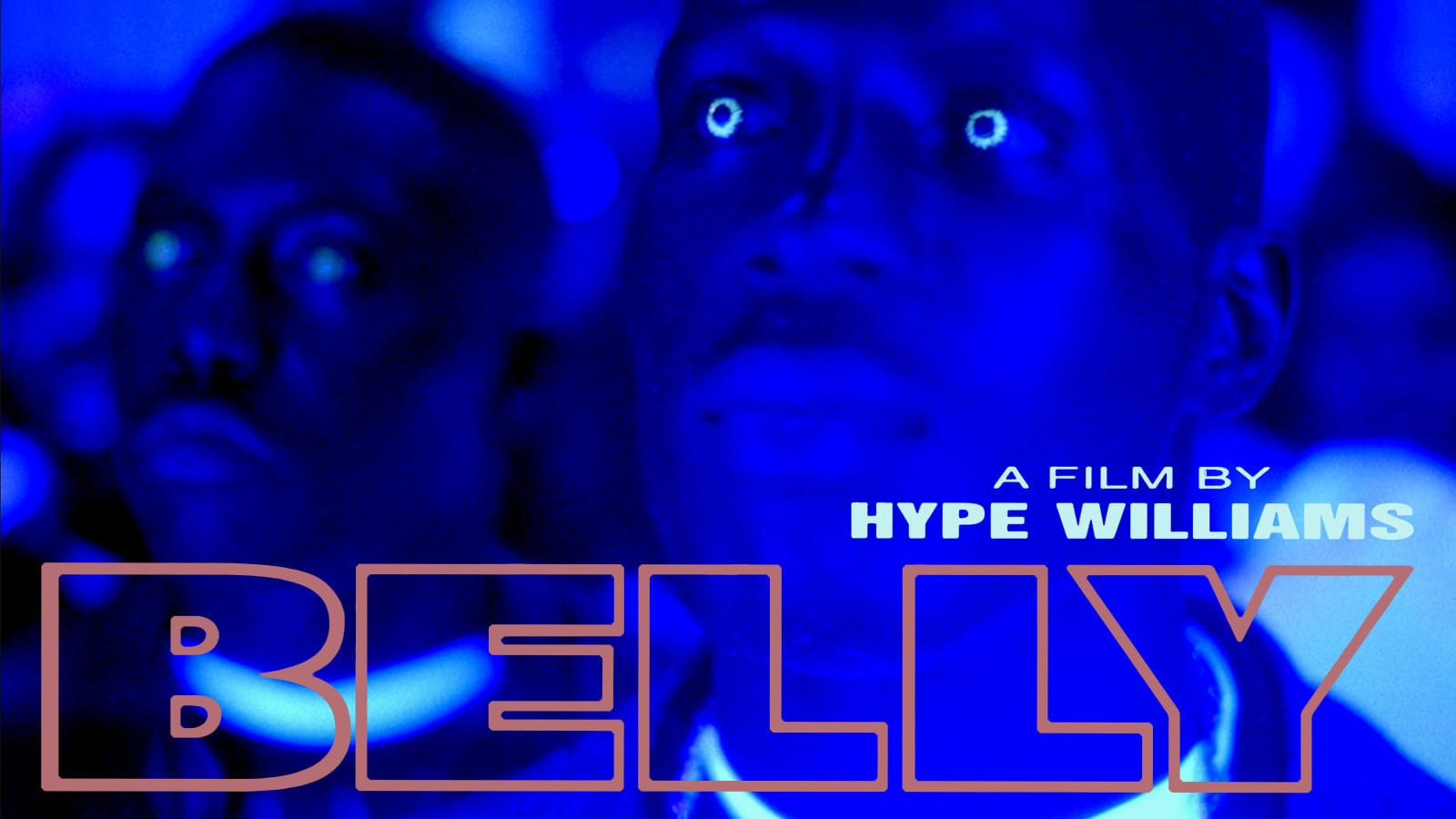
Premiering November 1 in Hip-Hop: Belly
WATCH NOW
Music-video visionary Hype Williams made a dazzling leap to feature filmmaking with this instant cult favorite, starring DMX and Nas as a pair of hustlers dangerously striving for salvation
Plus: Belly 2: Millionaire Boyz Club

Premiering November 1 in ’90s Horror
WATCH NOW
Our haunted-house tour through the best of ’90s horror continues with a pair of classic terror tales reimagined by iconoclastic directors Francis Ford Coppola and Abel Ferrara.
FEATURING: Bram Stoker’s Dracula (1992), Body Snatchers (1993)
ENCORES
Back by Popular Demand
Don’t miss these viewer favorites, returning to the Channel in November!
FEATURING: Nightmare Alley (1947), Panic in the Streets (1950), The House on Telegraph Hill (1951), Easy Rider (1969)
